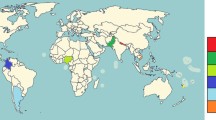Abstract
Nowadays, many important changes to residents’ education are being introduced, including the regulation of working hours, the waiting time to start specialization, the training programs in new technologies, the heterogeneity of trainers and educational centers, and the existence of many different subspecializations. In Greece we have not yet established all the arrangements needed to meet the European Community’s legislation concerning working hours apart from the extremely long waiting time to begin surgical training. There is an enormous heterogeneity among hospitals that provide surgical specialties, but there is no educational program that all residents have to follow to complete their training. Only in major university or general hospitals are the residents enrolled in a specific educational program and complete an adequate number of surgical procedures. With respect to training in new technologies, there is a lack of experienced surgical departments around Greece that provide this type of education to all residents. Of course, efforts have been made to meet the international educational criteria and there are many major general hospitals that can provide an adequate and up-to-date surgical education, although much still needs to be done to meet the international standards.
Similar content being viewed by others
References
Kostakis A (2005) Historical evolution of surgery. In: Modern surgery. Diagnosis and treatment. Paschalidis Medical Publications, Athens, pp 1–25
Brotherton SE, Simon FA, Etzel SI (2001) US graduate medical education 2000–2001. JAMA 286:1056–1060
Strub WM (2002) Decline in surgical training. Lancet 359:2277–2278
Avgerinos E, Medical education during residency. The Greek and European reality. http://www.medtime.gr [accessed May 2008]
Owens JA (2001) Sleep loss and fatigue in medical training. Curr Opin Pulm Med 7:411–418
Weigner MB, Ancoli-Israel S (2002) Sleep deprivation and clinical performance. JAMA 287:955–957
Lewis PM, Chick CM, Flavell EM et al (2003) Tiredness kills. Ann R Coll Surg Engl 85:S6–S10
Anonymous (1993) Council Directive 93/104/EC of 23 November 1993 concerning certain aspects of the organization of working time. Offic J 307:18–24
Anonymous (2000) Directive 2000/34/EC of the European Parliament and of the council of 22 June 2000, amending Council Directive 93/104/EC concerning certain aspects of the organization of working time to cover sectors and activities excluded from the directive. Offic J Eur Commun 195:41–45
Sakorafas GH, Tsiotos GG (2004) Medical education: new legislative frames, new problems, and future perspectives, with a particular emphasis on surgical education. Iatriki 86(6):481–491
Agelakis Ch, The need for trauma education. http://www.disabled.gr [accessed May 2008]
Author information
Authors and Affiliations
Corresponding author
Rights and permissions
About this article
Cite this article
Kostakis, A., Mantas, D. Surgical Education in Greece. World J Surg 32, 2167–2171 (2008). https://doi.org/10.1007/s00268-008-9653-2
Published:
Issue Date:
DOI: https://doi.org/10.1007/s00268-008-9653-2




